|
Degree |
|
Diploma |
|
Accreditation |
|
Study funding |
|
Length |
|
Language |
|
Credit points |
|
Mode
|
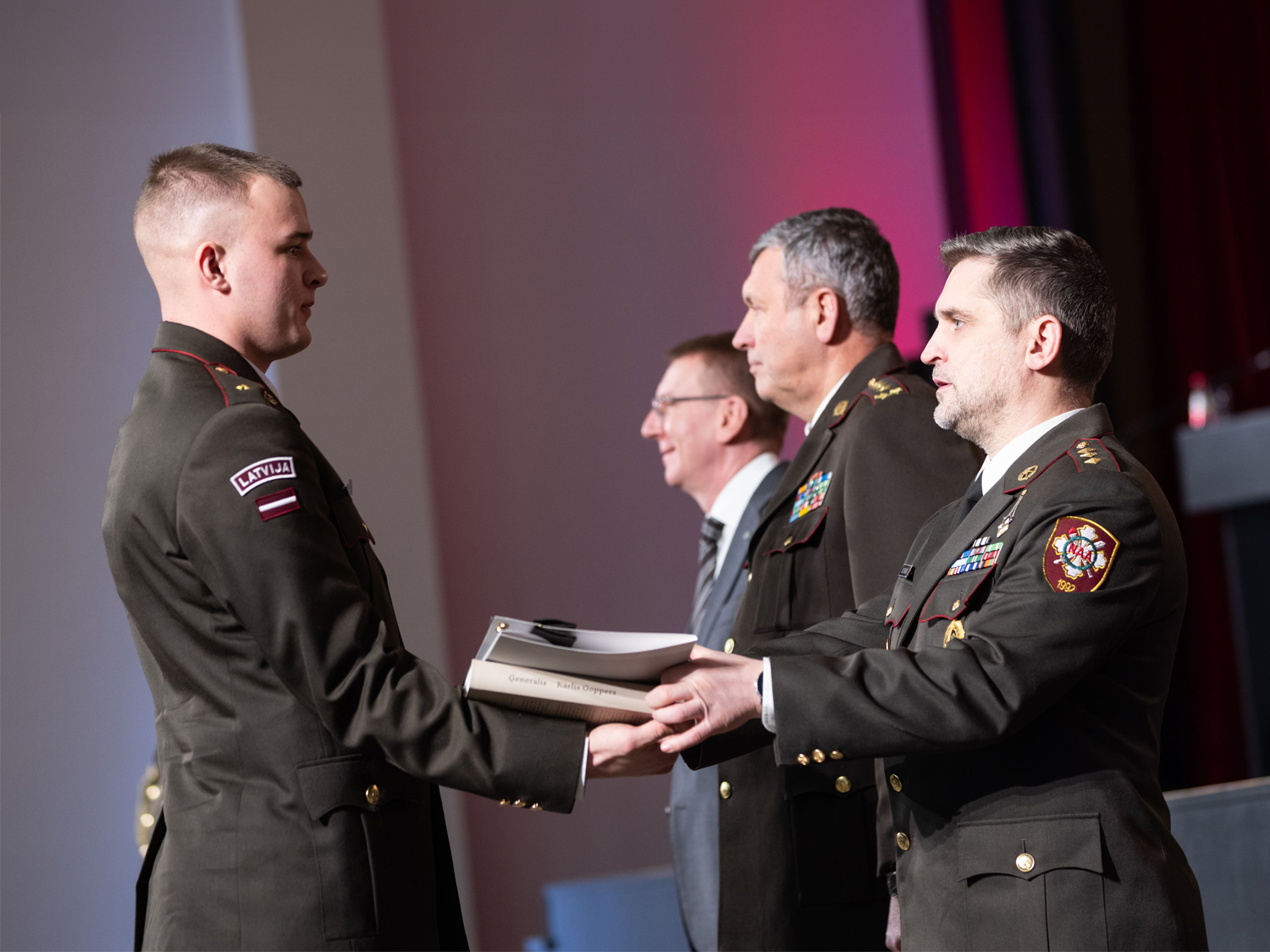
Objective of the study programme
To improve and develop the competences of senior officers and security sector employees in the field of military leadership and security on national and international levels.
Learning outcomes:
Comprehensive knowledge and complex skills in the field of defense and security that meet modern-day requirements, which includes strategic planning and management in the planning and implementation process of military operations.
Admission criteria
1. Bachelor’s degree that may be equaled to the Latvian higher education.
2. The candidate is presently enrolled in the BALDEFCOL (Baltic Defense College) JCGSC or has graduated from it, or has been assigned by a Commander’s order to study at the NDAL master’s study programme.
3. The theme of the master’s thesis corresponds to the goals of the corresponding National Armed Forces unit and one’s future career plans. The career and previous work experience meets the admission requirements of the programme (this is assessed by the Admission Committee).
Admission documentation
- Application Form (the application form issued by the Latvian National Defense Academy (NDAL) in Latvian or English).
- Documents proving the acquired second or higher level education – a copy of the diploma and its annex, while presenting the originals. If the applicant has graduated from a foreign educational institution and the educational document has been issued in English or another foreign language, the applicant must receive a formal acknowledgement of the adequacy of the foreign higher educational documents at the Latvian Academic Information Center.
- Copy of the Passport (the page with the person's photo), while presenting the original.
- Curriculum Vitae.
- The students currently enrolled in the BALTDEFCOL JCGSC submit their BA diploma and its annexes, while presenting the original.
- Master's Thesis research application form in Latvian or English.
Application for studies
- Those NAF officers who are not JCGSC students may be admitted to the professional graduate study programme only after their candidacies have been approved by the NAF Commander’s order.
- The applicants are admitted to the programme after evaluating the necessary documentation, the Master's Thesis research application and compliance with the English language requirements. If necessary, interviews are held with the applicants.
- Admission rules for the study year 2024/2025.
Content of the Study Programme
YEAR ONE
The first and the second semesters are held at the BALTDEFCOL, where the combined command and senior staff officer course – BALTDEFCOL JCGSC – is acquired.
During the second semester, students must participate in two additional courses and pass their tests: "Theory and Practice of Scientific Research" and "Civil Defense Course".
YEAR TWO
During the third semester, students must carry out their individual research, preparing their Master's Thesis for submission for pre-defense at the end of the semester (usually on December 1 of the calendar year) and for the defense of the completed thesis (in January). Each student is assigned a Master's Thesis supervisor from the academic staff of the NDAL and BALTDEFCOL. We invite you to familiarize yourself with the methodological instructions for the Master's Thesis both in Latvian and in English.
The content of the study programme may be updated and altered during the study process.
Courses
Following study courses will be acquired:
- Security and Strategy;
- Operational Law;
- Project Management;
- Defense Planning and Management;
- Innovations and Military Technology;
- Crisis Management;
- Leadership and Command; Media and Communication;
- Civil Protection;
- Research Project;
- Academic Research;
- NATO Operational Level Planning;
- Combined Joint Staff Exercise;
- Allied Joint Operations;
- International Study Trip;
- Electives in two courses.
Study programme objectives
1. To deliver modern and high-level knowledge and analytical skills in the field of collective security and defense.
2. To develop analytical and research. skills in the security and military sector as well as with interdisciplinary research.
3. To develop students' leadership and management ability as well as their critical thinking skills.
4. To deliver quality knowledge and skills in the field of digital transformation, information technologies, and cyber security.
5. To promote students' further interest in research, lifelong learning, and the opportunity to continue their doctoral studies in other academic institutions.
Opportunities to continue studies
The professional master's degree entitles you to continue your education in various doctoral study programmes if the admission requirements of the relevant doctoral study program are met.
Academic staff and location of studies
Study Programme Director
 |
Dr. Sandis Šrāders |
Methodologist of the Educational Planning and Support Administration
 |
Viktorija Suhačova |
Faculty (supervisors of master's theses)
 |
Dr. sc. pol. Ieva Bērziņa |
 |
Dr. oec. Jānis Bērziņš |
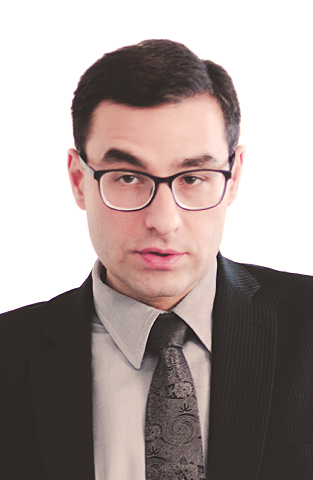 |
Amb. Shota Gvineria |
 |
Dr. Asta Maskaliūnaitė |
 |
Dr. sc. pol. Toms Rostoks |
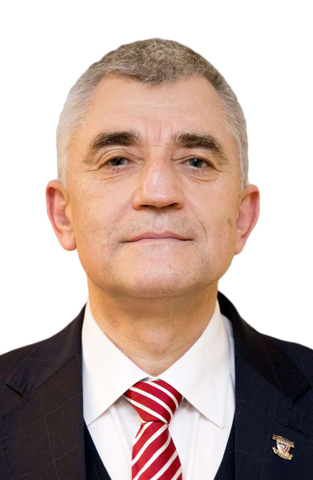 |
Col (ret) Dr. Zdzislaw Śliwa |
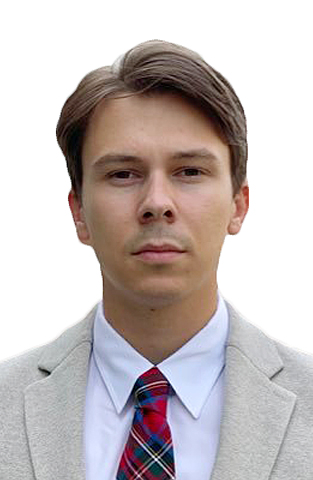 |
George Spencer Terry |
Study location: National Defence Academy of Latvia and BALTDEFCOL
ALUMNI
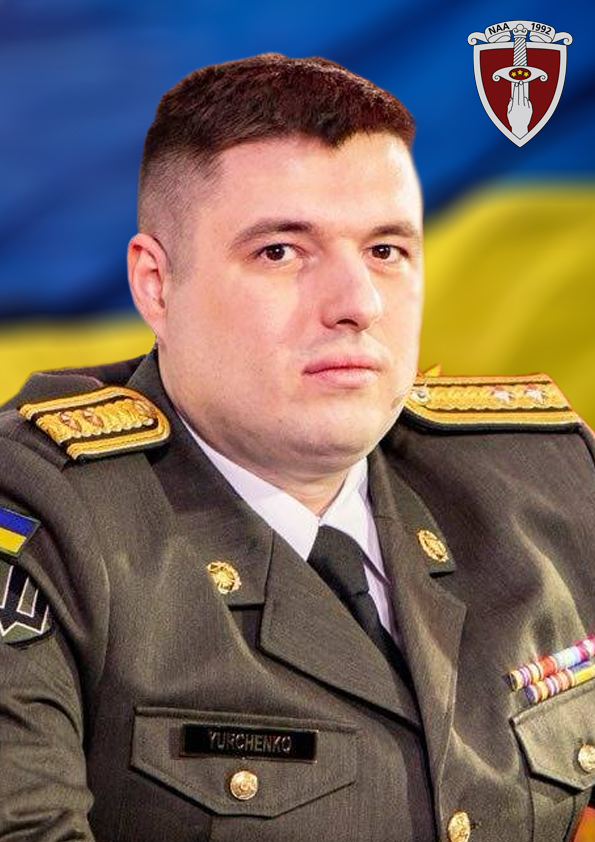 |
Lieutenant Colonel (Ukraine) Denys Yurchenko |
“I value highly the master's program “Military Leadership and Security” at the National Defence Academy of Latvia. It provides officers from different countries with invaluable knowledge and research capabilities. When the opportunity came, I enrolled into the program without any doubt and was happy to see it delivers what it promises. During my academic journey, I had to write and research a lot which is the salient difference from my daily professional work. If the participants of the master's program overcome all these challenges and fulfill all the requirements by earning the master's degree in military leadership and security, then those graduates are ready for higher ranks in their militaries!”
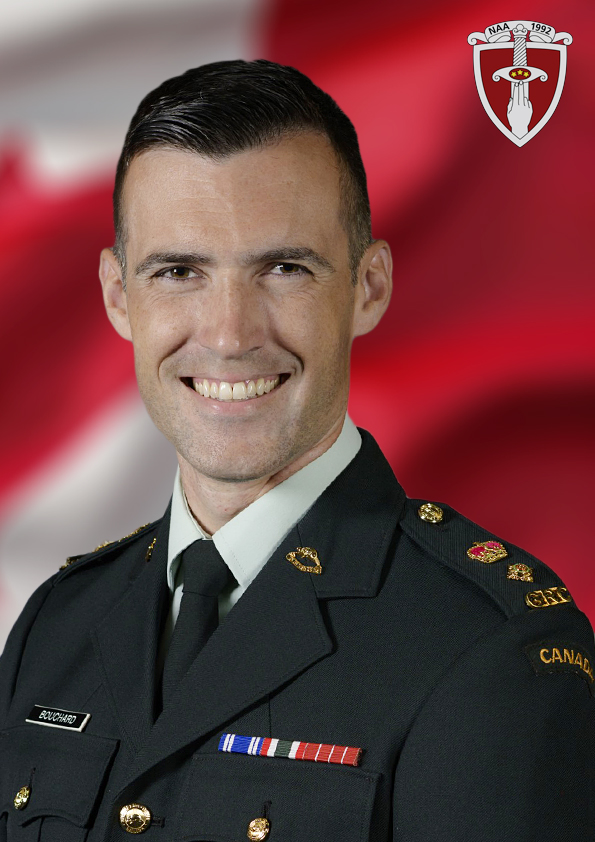 |
Lieutenant Colonel (Canada) |
“Completing the “Military Leadership and Security” master's program was nothing short of a privilege. With students stemming from 14 different countries, the opportunity to share and debate various perspectives on significant and timely security issues was both unique and highly rewarding. Moreover, with almost as many countries represented within its scholars, the faculty provided a bespoke, diverse, and dynamic learning environment favoring respectful debates and constructive academic learning. I deeply felt the importance and the high relevance of what I was being taught – the Baltic understanding of the cost and the paramount importance of their freedom. Something that we, the North Americans, often take for granted.”
 |
Lieutenant Colonel |
“The professional master's programme is extremely versatile and covers a wide range of topics for an in-depth and comprehensive understanding of international politics and military security. The programme is exceptionally suitable for acquiring knowledge and understanding of the developments and processes of international security policy and geopolitical situation, current events and their impact in the wider security context. The international environment, exchange of knowledge and experience between political and military experts, simulation of complex scenarios and situations contribute to the development of analytical skills and critical thinking, which is an essential contribution to the students’ further professional development. The teaching staff of the programme are highly qualified and experienced professionals who ensure particularly effective implementation of this programme.”